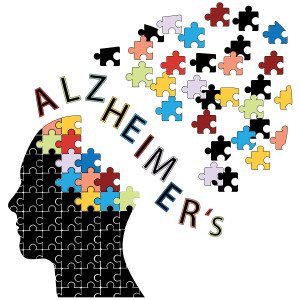Scientific Breakthrough Delivers Hope for Elderly Care
Elderly Care in Concord NC
A recent scientific breakthrough may mean great news for many who are providing elderly care. According to researchers from Johns Hopkins University, there is a lot of hope surrounding the 
Degenerative nerve diseases are some of the most complex and difficult diseases to cope with, and effect the elderly populations at a highly disproportionate rate. One of the most well-known forms of degenerative diseases is Alzheimer’s Disease, which is a disease categorized by progressive mental deterioration that most typically begins around middle age as a result of degeneration of tissues in the brain.
The tissue degeneration results in severe and permanent damage to brain functions, including to memory and cognitive functioning. People who develop Alzheimer’s may have only small memory lapses at first, or just some minor cognitive confusion, but as the disease progresses and that degeneration continues the memory loss can grow severe, even amounting to the loss of memories that are most cherished, including recall of faces and memories of family members. Those with progressed stages of Alzheimer’s are often unable to care for themselves as a result of the chronic confusion.
The breakthrough out of John’s Hopkins is exciting news in the scientific and medical community. This protein would be able to stop the degeneration of tissues. This means that when the symptoms of Alzheimer’s are caught early on, treatment can be implemented to prevent the disease from progressing, prolonging quality of life in those who have the disease. Alzheimer’s is not the only disease that this breakthrough would support. The scientists were actually focusing their research on a treatment for ALS, or Lou Gehrig’s disease, which is a degenerative disease that causes the deterioration of tissue throughout the body, leaving people paralyzed and without control over many bodily functions, rather than the cognitive faculties like Alzheimer’s disease.
Living with Alzheimer’s disease is one of the most difficult experiences that anyone can imagine enduring. Most often, that burden is shared by the caregiver as well, including the family members who care deeply for the inflicted. This scientific breakthrough may be most exciting for those who provide in-home care for loved one’s with Alzheimer’s. While there is no way to turn back time, there is an enhanced level of hope for future generations, that there may be a fundamental shift in our ability to treat degenerative diseases in the future and thereby enhance the quality of life for many who we care about.
If you or an aging loved one are considering elderly care in Concord, NC, contact the caring professionals at TenderHearted Home Care today. Call us at (704) 207-0265
- Six Areas Your Loved One May Need Help With During the Early Stages of Alzheimer’s Disease - May 8, 2025
- What Harms Senior Mental Health? - April 23, 2025
- How 24-Hour Home Care Can Protect Your Senior Parent - April 4, 2025

